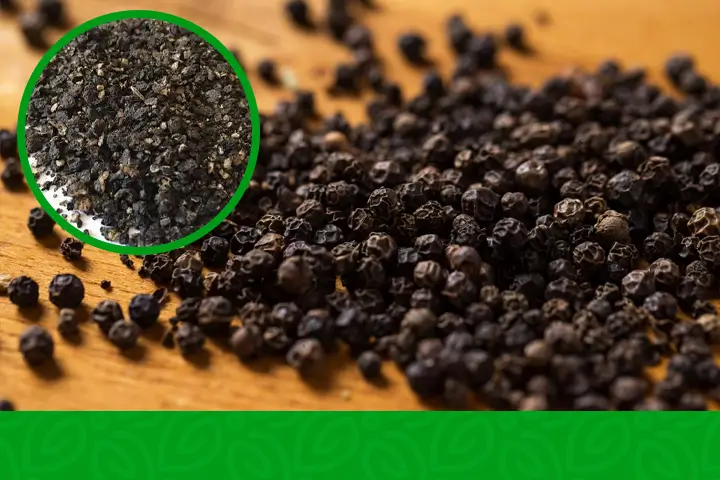
Black pepper spent refers to the waste or by-product generated during the processing of black pepper. When black pepper is harvested, it undergoes various processing steps, including cleaning, drying, and grinding. The residue or waste material that remains after these processes is known as black pepper spent.
In terms of sustainability and minimizing environmental impact, the food industry can find several potential uses for black pepper spent.

Here are a few examples:
1. Composting: Black pepper spent can be added to compost piles or used as a soil amendment. It contains organic matter that can enrich the soil and improve its fertility. By utilizing black pepper spent in composting, the food industry can divert waste from landfills and contribute to sustainable agricultural practices.
2. Animal feed: Black pepper spent can be incorporated into animal feed formulations. It contains some nutritional components that can be beneficial for livestock, such as protein, fiber, and minerals. By using black pepper spent as animal feed, the food industry can reduce the amount of waste generated and potentially lower the reliance on other feed ingredients.
3. Extraction of bioactive compounds: Black pepper spent contains various bioactive compounds, including antioxidants and essential oils. These compounds can be extracted and utilized in the production of functional foods, dietary supplements, or natural food additives. By extracting these valuable compounds, the food industry can create additional value from the waste material while promoting sustainability.
4. Energy generation: Black pepper spent can be used as a biomass fuel for energy generation. It can be converted into biochar or used directly as a fuel source in biomass power plants or heating systems. By harnessing the energy potential of black pepper spent, the food industry can reduce dependence on non-renewable energy sources and mitigate greenhouse gas emissions.
It’s important to note that the specific utilization of black pepper spent may vary depending on factors such as local regulations, availability of processing technologies, and market demand. This is also used in some countries for blending into the main powdered black pepper, this can create variation in quantity, quality, organoleptic conditions and it’s not mentioned in the retail pack ingredient listing. Implementing sustainable practices requires careful consideration of environmental, social, and economic factors to ensure a holistic approach to waste management.
(Anil M V, Founder, Organil Services)
Organil Services are Registered for Organic Regulatory Certification Consultancy and Accreditation Services in the Industry. Organic Assessment, Organic Staff Selection, Training, Witnessing of Organic Processing, Validation of exported material 2nd Party audit, 2nd Party Organic Assessment assurance certificate, Container shipment of Organic Product Sealing report, Organic Investigation etc All customised with a Organic Consultancy Conversation.
WhatsApp for a Prepaid Consultancy +91 8606551335, Email # orgnil40@gmail
Stay updated with the latest farming tips and agriculture industry news from Africa by subscribing to our newsletter. Don’t miss out on valuable insights and updates. Follow us on Twitter, LinkedIn, and Facebook to join our farming community and stay connected with us.



















